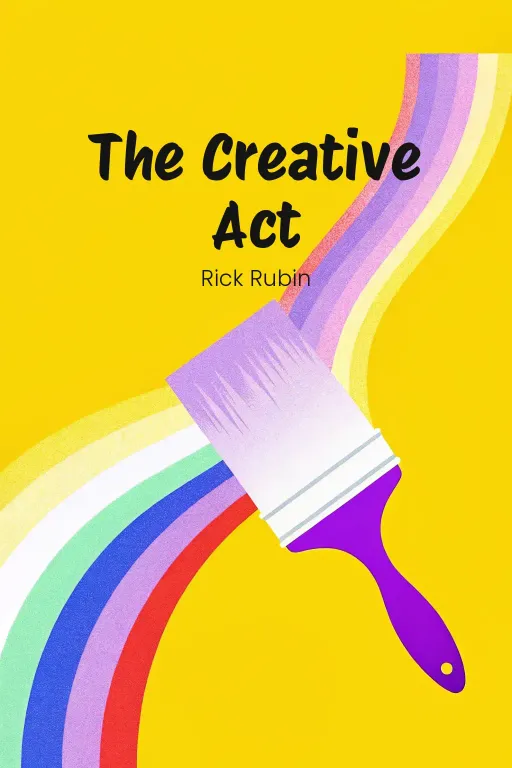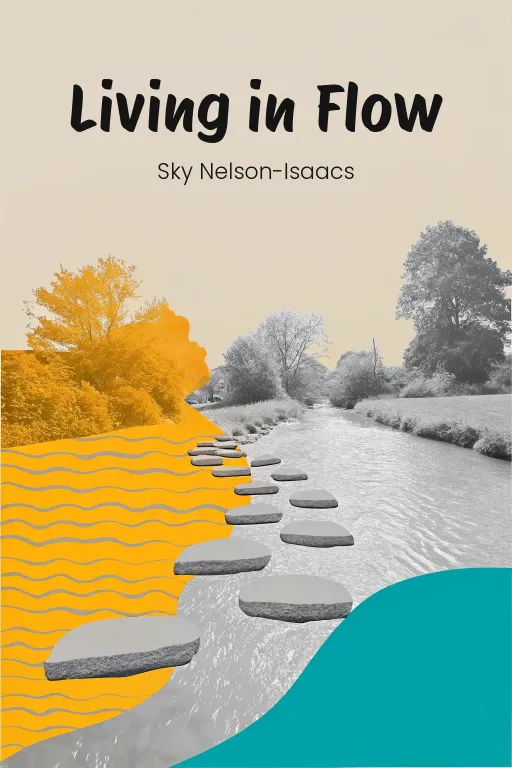
Ditch the Grind: Design Your Dream Life NOW
Podcast by Beta You with Alex and Michelle
Know What You Want, Why You Want It, and What You're Going to Do About It
Introduction
Part 1
Alex: Hey everyone, welcome back! Today we're diving into a book that's all about breaking free from our comfort zones, reframing how we see failure, and really going after those dreams that make life, well, “life”! We're talking about Bob Goff's Dream Big, a book that challenges you to wake up from the daily grind and start living with a real sense of purpose. Michelle: Right, Alex—and hopefully without turning us all into those corporate types who just plaster inspirational quotes everywhere, right? I mean, dreaming big sounds great, but how do we keep it real? How do we avoid it just being, you know, hot air? Alex: Exactly, Michelle! And I think that's what makes Dream Big different. It’s not just about feel-good vibes; it’s a mix of heart and strategy. Goff gives us actual, practical advice, digging into how being authentic, having faith, and building resilience are key to creating the life we actually want. Michelle: Okay, sounds good in theory. But what's the actual roadmap here? Because dreaming, that's the easy part. It's the “doing” that gets complicated, right? Alex: Totally. And that’s where the book shines. Goff breaks it down into five parts. First, it's about uncovering your true self, so your dreams actually align with what you believe in. Then, it moves into setting goals that really stretch you, goals that go beyond what society expects. Next, instead of waiting for luck, it's about actively creating opportunities. Because let’s be real, dreams aren’t easy, Goff also talks about building resilience to handle setbacks. And finally, and this is key, he talks about how to keep believing in your dreams long-term, and how to build a support system to keep you going. Michelle: So it's basically like designing a rocket to get you to your, your own personal moon—building a solid launchpad, fueling up with a clear vision, launching, making adjustments along the way, and hoping you don't crash and burn into an asteroid? Alex: <Laughs> That's one way to put it! But with Goff, even crashing becomes a lesson, something you learn from. So, whether you already have a big dream you're chasing or you're just looking for a spark to get started, this episode should have something for you.
Self-Discovery and Authenticity
Part 2
Alex: Alright Michelle, let’s dive right into it - Self-Discovery and Authenticity. You could say it’s the 'why' behind dreaming big, right? Goff seems to think it all starts with knowing yourself. But honestly, how many of us “really” do? Michelle: Exactly! I mean, the real question is, do we “ever” truly know ourselves? Alex: Well, that's exactly the point, Michelle. Goff emphasizes that we often run on autopilot, driven more by expectations or circumstances than by our genuine desires. Self-discovery is about peeling back those layers – societal roles, family expectations, even our own misconceptions – to uncover what truly drives us. Michelle: Okay, but let’s be real. Isn’t this whole “finding yourself” thing a little… indulgent? We're all swamped. Who has the time to sit around contemplating their innermost thoughts? It sounds great, but does it really accomplish anything tangible? Alex: It's not indulgent – it's essential. Without that process, you risk chasing dreams that aren’t actually yours. Remember Goff’s story about his friend recovering from a stroke, trying to piece her identity back together through photos? The stark moment when she couldn’t even recognize herself? That’s a metaphor for so many of us. We know the world around us, what’s expected, what’s routine, but we’re strangers to ourselves. Michelle: I’ll grant you, that's a powerful image. But say someone's willing to dig in – what does this self-reflection actually look like? It's easy to say, "Figure out who you are," but harder to make it concrete. Where do we even begin? Alex: Great question. Goff offers practical tools to make self-discovery doable. For starters, journaling – using prompts like, "What truly brings me joy?" or "If I could ignore every external expectation, what would I pursue?" It helps you explore your motivations over time. Michelle: Sure, but I can see people staring at a blank page, completely overwhelmed. Is there a safety net for the newbies, for people who have no idea where to start? Alex: Absolutely. Structuring it with a "personal timeline" really helps. You jot down the high and low points of your life – significant milestones – and then reflect on what they taught you. Patterns start to emerge. These insights reveal your core values and even why certain ambitions have stuck with you while others haven't. Michelle: Okay, I can get behind that. It sounds… less abstract. And, from Goff’s perspective, it's not just navel-gazing, but identifying the deeper motivations behind our choices, like why someone might push for a high-paying job – because they grew up poor, for instance. It seems simple, but connecting those dots can be transformative. Alex: Exactly. Once you see those patterns, you can sift through which motives are authentic... and which are borrowed or imposed. Which leads to perhaps the hardest part: breaking free from those false external expectations. Michelle: Ah, societal pressure – the usual suspect. But isn’t it a bit simplistic to just say, "Don’t let society dictate your dreams"? I mean, we can’t exactly live in a vacuum, can we? Alex: That’s true, but think about Goff’s comparison between his law students and the inmates at San Quentin – the way he talks about those two groups is the perfect illustration. The law students? Full of ambition, achievement-driven. But so many of them were stuck chasing prestige, not passion. Meanwhile, the inmates, despite their circumstances, had this raw authenticity because they weren’t shackled by societal expectations anymore. It’s a striking contrast, isn't it? Michelle: Wait, so is Goff suggesting that inmates, some of whom have truly hit rock bottom, are more self-aware than high-powered law students? That's… a pretty bold statement. Alex: Not that they're necessarily better off, but they possess a unique kind of freedom. Being stripped of external validation gave them clarity; they weren't trying to fit into anyone's mold anymore. And that’s a lesson for all of us: sometimes we need to pause and ask, "Am I living my life, or the one someone else scripted for me?" Michelle: Alright, I see the logic in pushing against the status quo – a life lived solely for others can't be that fulfilling. But let's get down to brass tacks: how do you actually know if what you're chasing is authentic? It's easy to tell ourselves, "This is what I want," when it's really not. Are there any telltale signs? Alex: That’s where feedback from trusted relationships comes in. Goff talks about how people like his wife, Maria, offer perspective and keep him grounded. Sometimes, other people see what we miss ourselves. Close friends, family, mentors, they can illuminate blind spots in our self-perception, point out recurring strengths, or call out unhealthy patterns. Michelle: Fair enough. Although, asking others for feedback requires a degree of vulnerability that could be a bit scary, or at least uncomfortable, I'd imagine. Opening yourself up can feel like a risk. Alex: It can, but it's worth it. Surrounding yourself with people who champion your authenticity—not what they want you to be—is key. It’s not just about tearing yourself down; it’s about building your ambitions on a sturdy foundation of personal truth. Michelle: That "foundation" idea sums it up nicely. Because if your ambitions stand on shaky ground – that is, on other people’s expectations – they’ll crumble at the first setback. So, if this self-reflection thing is the groundwork for dreaming big, where do we go next? What's step two? Alex: It's about aligning what you uncover with the ambitions you pursue – creating a life that feels deeply personal and meaningful.
Setting Absurd Expectations
Part 3
Alex: Okay, so, once you really understand yourself, the next thing is to set some ambitious, but also meaningful goals. And this is where Goff’s idea of "Setting Absurd Expectations" comes into play, right? This takes us from looking inward to actually doing something, pushing us to aim high and challenge what we think is normal. Michelle: "Setting Absurd Expectations"—it sounds great, but also, a little… much? How do we make sure we're dreaming big, but not just being reckless, you know? Alex: Exactly, Michelle, and Goff actually deals with this. It’s not about being reckless, it’s about daring to dream without those made-up limits we put on ourselves. He wants us to rethink what's possible and aim higher than what we think is “realistic”. But it’s not just dreaming for the sake of it, it’s dreaming with a real purpose, in line with what’s important to us. Michelle: Okay, yeah, but "absurd"? It makes me think of goals that are so crazy, they're basically impossible. Are we really supposed to be chasing after things we can't achieve? How does that even help? Alex: Well, it’s not about chasing the impossible just to do it. Goff uses "absurd" to challenge our habit of playing it safe or staying inside the lines that society draws for us. It’s about dreaming big, not recklessly, but in a way that questions what we know and what feels safe. Like when he talks about Appalachian leaves: the forest is alive, full of possibilities, but if we don't choose something, commit to something extraordinary, we could end up stuck, not knowing what to do. Michelle: Ah, yes, the famous "gathering leaves" moment. He’s surrounded by all the autumn colors, trying to pick the right ones for Thanksgiving, and… freezes. Alex, comparing dreams to leaves sounds nice, but it feels a bit… idyllic? How does this apply to someone juggling a job and a million other things? Alex: You're right, if you just look at it on the surface, it can sound a bit distant from real life. But the metaphor is deeper than that. Those amazing, overwhelming choices represent all the things we could do in life. Goff’s feeling stuck in that moment is what many of us feel when we think about our goals. With so much we could do, we often choose the safer, smaller options just to avoid making the "wrong" choice. And Goff’s point is: don’t let the fear of not being perfect stop you from gathering your own "leaves"—from committing to dreams that are big and meaningful. Michelle: Okay, I'll give him credit for using indecision as a lesson, very relatable. But not everyone’s standing in a forest with endless possibilities. What about people who feel stuck, like they're hunting for "leaves" in a desert? They don’t even have these big dreams to begin with. Alex: That’s why the concept of absurd expectations becomes so important, Michelle. Goff talks about looking back at past goals—those dreams we gave up or forgot—as a way to start. He mentions wanting to save $100 to ask someone to prom when he was a teenager. It felt huge back then and came with problems he didn’t expect. Now, he calls it ridiculously small because it didn't represent what he truly valued. Goff wants readers to think about what they’ve put aside—and to reevaluate which of those old dreams still matter. He says that this can bring back some of the courage we’ve lost along the way. Michelle: So, it’s like taking inventory of your old dreams, Marie Kondo style, and asking, "Does this spark joy?" Or more importantly, "Does this matter now?" Alex: Exactly. And once you've looked at old ambitions, make sure your future goals line up with what you really care about. Goff tells a story about trying to pass his motorcycle test—it's funny, but it teaches a lot. He first tried to pass on a big Harley-Davidson because he thought it fit the image of who he wanted to be. When that didn't work, he switched to a less flashy Vespa scooter and passed. It shows how we sometimes aim for what looks impressive or meets what others expect, instead of what’s real to us. The takeaway? Absurd expectations should stretch you, but they also have to represent what you truly value. Michelle: That’s great—it kind of grounds the absurd in reality without losing its boldness. But, let's be honest, some people might still think "absurd" means "grandiose." How do you make sure these big goals aren’t just about chasing ego? Alex: Goff stresses filtering, asking yourself, "Does this ambition align with what I truly believe in, or am I chasing it for what others think?" He reminds us that it’s easy to let society decide what success looks like—money, titles, fame—but to set goals that really mean something to us, we have to ignore all of that. Writing down and visualizing your goals helps. Goff encourages people to turn general ideas, like "being successful," into actual, specific steps. That way, the ambition doesn’t just live in your head, it becomes something real you can work towards. Michelle: So goals driven by purpose and clarity—that’s a relief. But how do you keep going when these "absurd" goals start to feel impossible? When the excitement wears off and you’re facing challenges that make you want to give up? Alex: That’s where Goff's focus on purpose and action comes in. He says that doing nothing, or "thinking too much," can ruin even the boldest dreams. Remember the "leaves" story—not choosing is worse than choosing wrong. Goff believes that starting, even when you’re not sure, creates clarity and builds momentum. Dreams don’t have to be huge from day one. Start small and intentionally, and let those small wins help you take bigger steps. Michelle: So, it’s like hiking. Start with a backpack that feels too heavy for the summit—you’ll eventually lighten the load as you go and realize you’re stronger than you thought. Alright, I’ll give Goff credit for this journey he’s taking readers on. Once you’ve gathered your "leaves" and committed to a big goal, what’s next? Alex: Next? Taking those dreams—both big and audacious—and giving them a plan. Goff gives us practical strategies for matching our goals with our daily lives, and, most importantly, he shows us how to embrace, you know, challenges along the way.
Exploring Opportunities
Part 4
Alex: Once you've set those goals, it's all about spotting and grabbing those opportunities, right? It's like, we've built the launchpad, now how do we actually get this rocket off the ground? It’s where the dream meets reality, you know? Michelle: Exactly! It’s that shift from “Wouldn’t it be amazing if…” to “Okay, so how do we actually make this happen?” And let’s be real, that’s where the real grind begins. Big dreams are great, but Monday morning hits, and that dream is still sitting there. Alex: Precisely! And that’s where “exploration” comes in. Bob Goff isn’t just about the dreaming part; he's constantly urging us to get out there and make things happen, to find opportunities rather than just waiting for them to magically appear. He’s a huge believer in being bold, like in his story about trying to meet the Queen! Michelle: Wait a second, the Queen? That’s next-level ambition! I mean, that's aiming for the kind of “highly unlikely” that borders on the absurd, isn't it? Alex: Totally! Goff was in London for a conference and thought, why not send a letter to Buckingham Palace, see if the Queen has a moment? Of course, it seemed like a long shot, but he actually got a reply—from one of her ladies-in-waiting, politely declining, of course. But for him, it wasn't about the rejection; it was about how that simple act transformed his whole trip. Suddenly, it was an adventure. Michelle: So, the takeaway is “go big or go home”? Look, it’s a fun story! But you can already hear the skeptics: "Well, Bob Goff gets a response. Not exactly an everyday situation, is it?" Alex: Maybe, but Goff's point isn't about who you are, it's about taking the initiative. He thinks opportunities often start with something simple: curiosity and a bit of boldness, you know? Reaching out, asking questions, putting your name out there for something. Even small actions can lead to surprising places. And he also emphasizes that success isn't just about hitting the target; it’s about having the guts to even try. It creates a mindset where possibilities expand simply because you're willing to take that first step. Michelle: Okay, I'm on board with the idea that just putting yourself out there changes things, even if it feels pointless at first. Now, let's talk networking. Arguably, networking is one of the greatest ways to create opportunities. What Goff's take to the dreaded “building connections”? Because, come on, it can feel so fake! Alex: Exactly, that can be the trap. People often dismiss networking as just being superficial, right? But Goff flips that, saying it's truly about building real relationships – being curious and generous instead of just thinking about yourself. He tells this story of Ryan, who took what looked like throwaway moment and turned it into something amazing. Ryan was working at In-N-Out when he saw a tweet from Uber. So he replied, said he was interested in helping out. And that small action led him to being one of Uber’s first employees and eventually its CEO. Michelle: The CEO of Uber started by replying to a tweet? Seriously? See, I think it wasn't just pure luck. It was being present, seizing an opportunity and jumping on it, right? Alex: Absolutely. That story shows us that opportunities can be in the most ordinary—even boring—moments. Ryan wasn’t trying to get something out of it; he was curious and proactive, and that's Goff's whole point. Networking doesn’t have to feel forced if you're genuinely interested and willing to engage. Goff has a few ideas, like reaching out to people you admire, not because you think you deserve their time, but out of real curiosity. Asking for advice, looking for mentors, offering help – those small things can create big connections. Michelle: Alright, fair enough. Let’s switch gears and talk about being discerning. What if you are swimming in opportunities? How do you sort through it all? How do you know which path is worth your time? Alex: <Laughs> Ha, discernment is key! Goff likes to compare it to shooting for the moon. You’ve got to be bold, but you also need to think about what tools, people, and methods you bring with you. He suggests talking to experienced mentors, people who've been there, to help you see which opportunities really line up with your goals. It's about really looking at a potential path before you sprint down it. And let's not forget preparing – Goff thinks it's super important to do your homework so you're ready when an opportunity aligns with your aspirations. Michelle: Right, preparation and discernment are like filters: Cutting out the distractions and focusing on what really matters. But Alex, every opportunity turns out to be great, right? Goff touches on the inevitable failures that make you wanna quit? Alex: He does, yeah, and that's where he talks about resilience. Goff knows challenges will come up – rejection, criticism, things you don't expect. These can feel like setbacks, but he suggests reframing them as just part of the adventure. Remember him sending that Letter to the Queen? The meeting didn't happen. But reaching out to her, it built his confidence and reinforced his belief that anything is possible. Success, Goff always says, comes from keeping at it and adapting, not from avoiding failure altogether. Michelle: So, setbacks aren't just part of the process, they're almost like milestones which test your commitment. Okay, I'll ask, another metaphor, please? Where does Goff land on the flexibility? Because, inevitably, things go wrong. Alex: Definitely. Goff’s stories show us all the time that some of the best things come from changes and adjustments. He tells us to be ready to change our plans when things shift. Being flexible isn't about giving up on your goals, it's about finding new ways to get there when your original path is blocked. Adaptability is what keeps you moving forward. Michelle: Okay, so dreaming big isn't just about setting ambitious goals, it's also about being flexible enough to deal with the bumps along the way. Once you've grabbed an opportunity, what's Goff's advice on making it real? It can't be as simple as saying “yes” and hoping for the best.
Overcoming Setbacks
Part 5
Alex: So, as we chase these opportunities, we're inevitably going to hit some walls, right? And that takes us to another key thing in “Dream Big”: dealing with setbacks. You know, Michelle, this is where Goff “really” gets into the nitty-gritty of the emotional and practical stuff, making sure our dream progress doesn't completely fall apart when we face those temporary failures. Michelle: The setbacks chapter, yes—it's probably where the book gets most real, don't you think? I mean, dreaming big sounds amazing until you face-plant into that first obstacle. So, how does Goff tackle this? What's his strategy when things get rough, as they inevitably will? Alex: He focuses on three main things: building resilience, reframing failure, and relying on faith and relationships. Let's start with resilience—it's kind of the base, you know? Goff doesn't try to make pursuing big dreams sound easy. He shares a story of failing his motorcycle test. The first time, he shows up with this big, flashy Harley, which turns out to be a terrible choice. So, he changes his approach and comes back with a Vespa. It's a simple story, but it shows that you need to be humble and adjust when things go wrong. Michelle: A Harley to a Vespa, wow. That's quite a shift, especially for the ego, isn't it? But I see the point, it's not about being stubborn or clinging to pride. It's about getting the job done, even if the road looks different than planned. So, about resilience, is Goff saying that success is less about dodging failure and more about just... rolling with the punches? Alex: Exactly! Resilience is seeing those obstacles as detours, not dead ends. Goff's story shows you might need to adjust your strategy – not your dream – to keep moving forward. You need to be flexible and determined to adjust without losing sight of your goal. For him, resilience is what keeps everything together when you're facing tough times. Michelle: Got it, I can get on board with that. But, not every failure is as easy as switching from a Harley to a Vespa. What about those “really” tough, soul-crushing failures? You know, the ones that make you question the whole dream itself. Does Goff talk about those? Alex: Absolutely, he does. He brings up this idea of reframing failure, and he talks about it through some pretty intense stories. Like, there's the failed rescue mission in India. He and his team were trying to save a girl from exploitation, and even with all their careful planning, it all fell apart. Not only did they not save her, but they ended up in danger themselves, attacked by a mob. It was chaotic, soul-crushing, and “really” personal for Goff— a moment where failure felt huge. Michelle: Wow, that's heavy. What does Goff take away from something like that? It's one thing to brush off a failed motorcycle test, but this? How do you even start to recover from something like that? Alex: Goff says to see failure as a chance to learn, not as the end of the road. He doesn't pretend it doesn't hurt or that you don't feel a sense of loss—it's there, for sure—but he uses it to ask some hard questions: What went wrong? What can I learn? How can this failure make our mission stronger? In this case, it made him rethink his strategies, fine-tune his approach, and “really” commit to fighting exploitation. Michelle: So, it's about digging for those lessons, no matter how painful. I respect that. There's a certain humility in failure, right? Recognizing that even your best efforts might not work out, but that doesn't mean the dream isn't worth pursuing. Alex: Precisely. Goff's not about sugarcoating failure; he’s about facing it head-on with curiosity. He shows how setbacks, even the big ones, can actually lead to innovation and build resilience. His experience in India is a reminder that failure's not the end—it's a teacher. And if the mission means enough, it's worth trying again, with new knowledge. Michelle: Okay, resilience and reframing failure—two good pillars. But let's be honest, there are setbacks you can't handle alone. What does Goff say about leaning on others? How do relationships play a role in overcoming these hurdles? Alex: Relationships are key. Goff calls them lifelines, especially when times are tough. He uses this image of a box of old keys in his house—keys that don't unlock anything anymore, but he keeps them anyway, out of habit. These keys represent old beliefs or patterns we're holding onto. It's through our relationships, with people who know us and challenge us, that we can figure out which of those keys we need to let go of. Michelle: I like that image—keys to doors that don't even exist anymore. So, the people around us help us decide which "mental keys" to throw away, makes sense. But building relationships like that isn't always easy. Where does that kind of trust come from? Alex: Trust comes from being vulnerable. Goff says it's important to surround yourself with the right people—people who encourage you, keep you accountable, and give you honest feedback without tearing you down. He talks about his wife, Maria, and how she brings clarity and balance to his life. It's through people like that—friends, mentors, or family—that we get perspective and the strength to keep going when things get hard. Michelle: Alright, so faith and relationships act as a kind of support system when things go wrong. Goff seems to rely heavily on both. Does faith get special attention in his discussion? Alex: Yes, it does. For Goff, faith is both a steadying force and a way to find renewal when facing obstacles. He challenges the idea that failure means you're being punished. Instead, he says it's part of the journey, a chance to grow spiritually while clarifying your purpose. Prayer, reflection, or even just taking a step back to get some perspective can be “really” helpful with resilience. Michelle: I see how tying it back to something bigger—whether it's faith or your own values—keeps you grounded when things go sideways. But what about practical advice? What does Goff suggest for people who are dealing with setbacks right now? Alex: Great question. He gives a few practical tips. First, he says to reflect on what happened. Ask yourself constructive questions like, "What did I learn? What can I do differently next time?" It's about turning what feels like a loss into something actionable. Second, he says to revisit your "why." When things get tough, reconnecting with the deeper reason behind your goals can reignite your motivation. Michelle: Reflect, reconnect, recover. Okay, Alex, I'll admit it—Goff's take on setbacks isn't just empty positivity. It's a mix of humility, practicality, and determination. Alright, let's hear what’s next.
Sustaining Belief and Landing the Plane
Part 6
Alex: Okay, Michelle, so navigating setbacks smoothly leads us to the final—and maybe the most critical—stage: holding onto that belief and, you know, actually “landing the plane,” so to speak. It's one thing to dream, to take action, and to push past those obstacles, but how do we keep that purpose and momentum going for the long haul? This stage is what really ties it all together, right? That consistent dedication. Michelle: Exactly! It does. But listen, you know I love to play devil's advocate here. Why is this the part people struggle with the most, do you think? Alex: Well, this stage is all about making sure your big goals don't just fade away before they actually happen. It's where we bring patience, trust, community, and faith together with those everyday actions, turning those big dreams into real things. Bob Goff uses an awesome example here – landing an airplane. He mentions the "ground effect," where an aircraft kind of floats right above the runway instead of landing because of the air pressure. A lot of people, he says, hover near their goals, not really willing or sure about fully committing to that final landing. Michelle: Okay, hold on. First, I'm a sucker for a good airplane analogy. But it makes me wonder, why do so many of us get stuck right there, just hovering? Is it a fear of failure, or maybe even of success? What stops people from finally committing to “landing the plane,” you know? Alex: It's both actually, Michelle! Fear of both failure and success can be paralyzing. Goff points out that really committing, making that final move, often forces us to face the possibility of messing up. What if the dream isn’t as amazing as we thought? Or what if getting there just brings even more uncertainty? He talks about running a generosity conference where, instead of just talking about giving, he put out two bowls—one for "Give" and one for "Take." People put stuff in the "Give" bowl, and anyone could take from the "Take" bowl if they needed something, you know? It was simple, but it needed trust—trust that people would give enough to make it work, and that taking wouldn't be abused. Michelle: That’s a cool idea, like a small experiment in how community spirit fuels bigger ambitions. But what's the real lesson here? That putting something “out there,” whether it's money, effort, or just the dream itself, forces us to commit, and then helps maintain it? Alex: Exactly! By creating that system of trust, Goff showed that big goals go from ideas to reality when people actually do things, driven by faith. It shows how deciding to “land the plane”—even if it's scary—creates a flow of momentum and results. Michelle: So, the key is committing fully, even with some uncertainty. But let's be real, Alex, a lot of us worry about running out of steam before we land. These ambitions can feel really stretched and far off sometimes. How do we keep that belief alive during the "ground effect" phase when things start to slow down? Alex: Goff talks about patience and doing things intentionally every day. He reminds us that dreams rarely come true in some big, dramatic moment—they're built little by little, step by step. He talks about focusing on small, achievable goals—making that one phone call, writing one page, or setting up a specific meeting. These steady actions keep things moving, even when things seem stuck. And he also stresses celebrating those little wins. Michelle: Ah, yes, celebrating wins—I feel like people often forget that, especially those ambitious types. It's like they're only focused on the finish line, totally missing the small victories along the way. What does Goff say about that? Alex: He's a big believer in celebrating progress, no matter how small. He compares it to climbing a mountain—pausing to appreciate how far you've come instead of constantly worrying about reaching the top. He shares a story about a woman who took just five dollars from that "Take" bowl at his generosity conference. With it, she decided to start making jewelry, a hobby she loved but never really thought was important. That small act of pursuing her dream became her first real victory. Over time, her work turned into a mission to support vulnerable children through her profits. It shows that even the tiniest steps, when celebrated and supported, can grow into something amazing. Michelle: Okay, the mountain climbing analogy makes sense too. You're not just rewarding wins, but reinforcing the thought that you're capable of more. Now, let's shift gears—what role does faith play in this final stage? And I don't just mean religious faith, but more a feeling of trust or belief in something bigger. Alex: Faith is really important, Michelle. For Goff, it's what keeps us grounded during uncertainty and guides us when things aren't clear. He shares a really powerful moment with a woman recovering from brain surgery who told him, "I want the few words I have left to matter more than all the words I’ve ever said before." Her faith in the importance of her time brought clarity and deeper purpose into her life. For Goff, this kind of reflection changes everything. Faith, whether it's spiritual or based on personal beliefs, gives us the viewpoint we need to handle the ups and downs of pursuing our goals. Michelle: So, faith as a compass—it keeps you on track even when things get messy. But Alex, how do we keep things practical here? What does Goff suggest for people who might feel disconnected from that sense of belief or purpose during the long haul? Alex: He gives a couple of ideas. First, he stresses the importance of meaningful reflection—making time to think about where you are, what you've done, and where you're going next. Visualizing your ultimate goal in detail can be incredibly motivating. Goff suggests imagining an "average Tuesday" living out your dream life. What does it look like? How does it feel? This exercise connects the abstract dream to specific, everyday images, which brings back focus and helps maintain belief. Michelle: That’s great—it’s not just imagining success in broad terms, but grounding it with specific, relatable details that make it feel real. And speaking of keeping things real, how does Goff factor relationships into this final stage? It seems like he always comes back to community. Alex: Relationships are super important in his philosophy. Goff sees them as the ultimate support, especially when our belief starts to fade. He tells the story of climbing with a friend and realizing his ropes weren't properly secured. Calling out and relying on his partner to readjust was the only way to continue safely. That willingness to depend on others is key, especially when we feel like we're losing our grip or focus. Michelle: So, the main point here is that keeping belief alive isn't a solo thing. It's a group effort—relationships, reflection, faith, and even rituals. But let me ask you, Alex, what if, after all this, someone's dream doesn't turn out the way they hoped? How does Goff handle that reality? Alex: He recognizes that some dreams will change or evolve. The goal isn't perfection or guaranteed results—it's the commitment to the journey. Goff argues that even if the dream changes, what really matters is how you change in the process. Every step makes you braver, clearer, and more intentional. So, landing the plane, even if it's not perfect, is still a victory.
Conclusion
Part 7
Alex: Okay, Michelle, so we've covered a lot today! We started with self-discovery and authenticity, right? Goff really challenges us to figure out what “really” motivates us. Then we jumped into having the guts to set those "absurd" expectations—dreaming big, but also making sure those dreams match our values. And how opportunities usually need us to actually do something, take that first small step that can totally change everything. Michelle: Exactly, and we didn't shy away from the tough stuff – setbacks and failures. I liked how Goff didn't try to make it sound all sunshine and rainbows. Resilience, seeing failure as a learning experience, and having the right people around us, that's what keeps us going when things go sideways. And then, that final, super important stage: really believing and committing when it’s time to “land the plane”. It's not just about those big wins, it's about being patient, sticking with it, and celebrating every win, no matter how small. Alex: Precisely. If I had to highlight one thing, it's how Goff reminds us that dreams don't just magically appear. They're built, brick by brick, through consistent action, trusting the process, and being flexible enough to adapt. And, you know, maybe the most important part is how we grow along the way—that's what makes the whole journey so worthwhile. Michelle: So here's the million-dollar question: what's one bold move you could make this week? Something that lines up with what you believe in and pushes you closer to that dream you've been, well, maybe thinking about... or avoiding? Maybe it's starting super small, maybe it's reaching out to someone, or maybe it's dusting off an old dream with a fresh perspective. Whatever it is, grab some resilience, double-check your gear, and just jump. What do you think? Alex: Dream big, everyone. Remember, it's not about how fast you get there, or if you mess up along the way — it's about having the courage to start somewhere. Let’s decide to turn those dreams into something tangible, something real.









